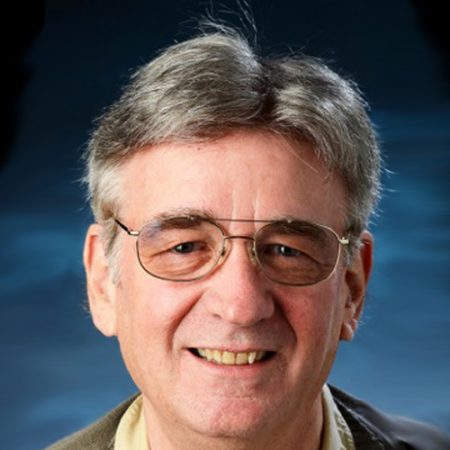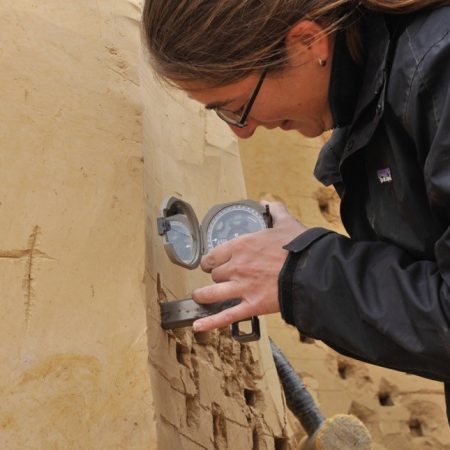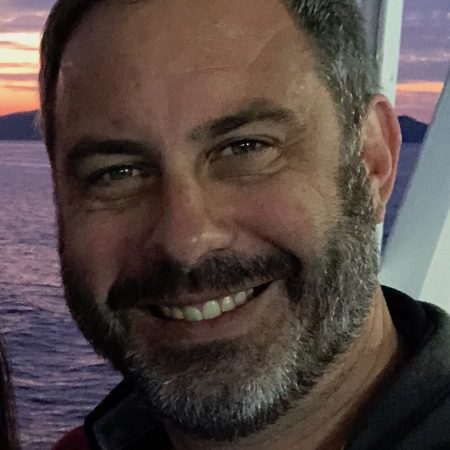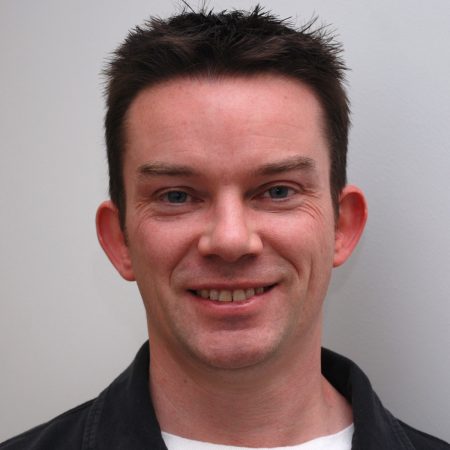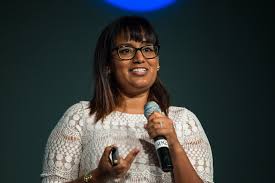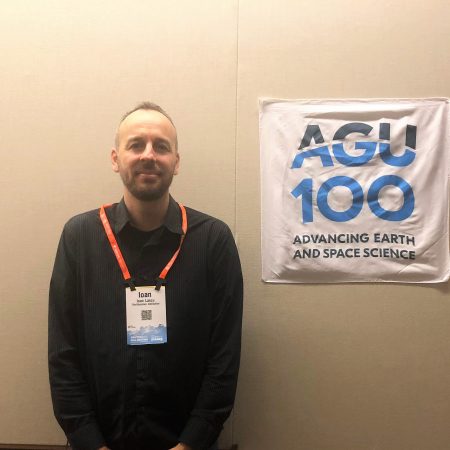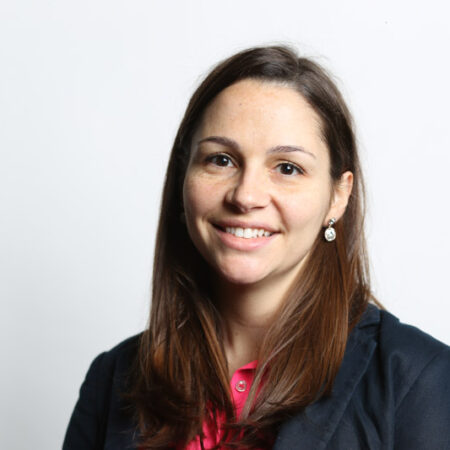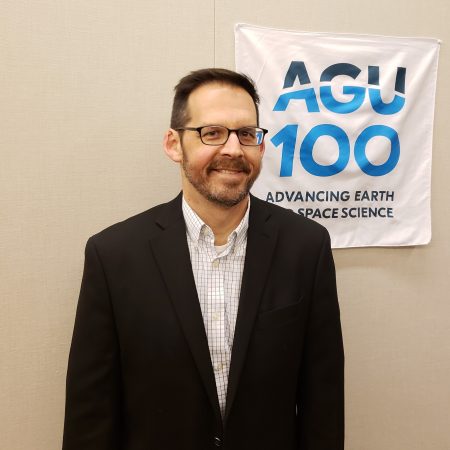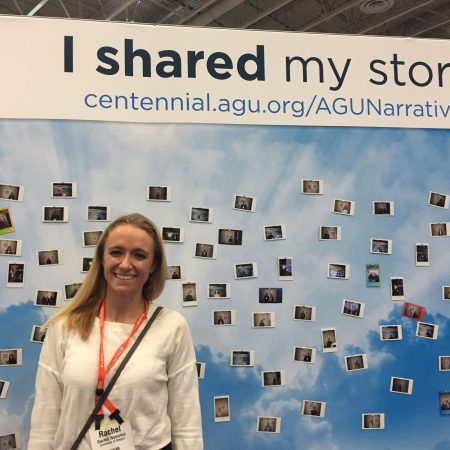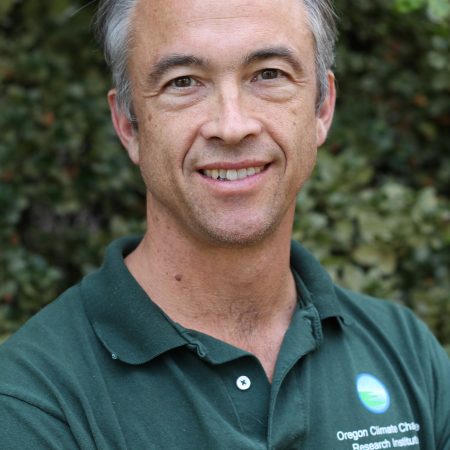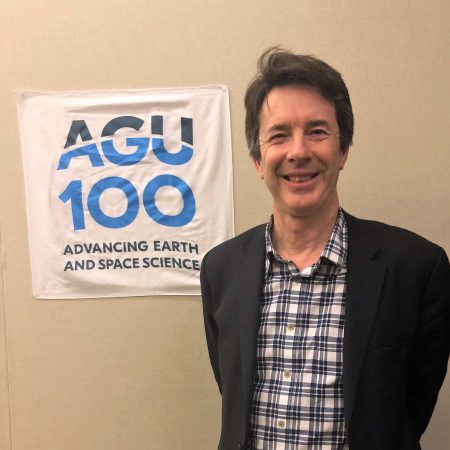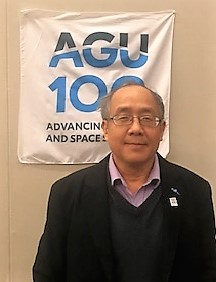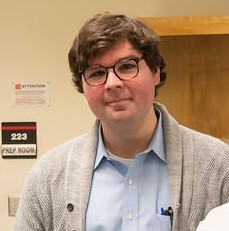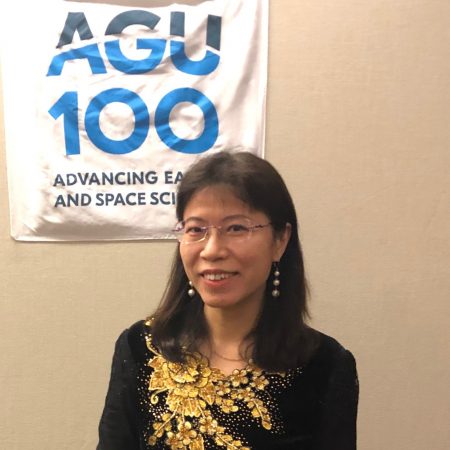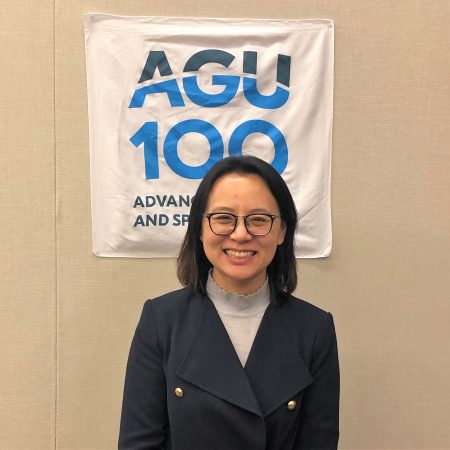Refine
Date Range Clear
Recorded by Clear
Keywords Clear
Partnerships Clear
- No matching terms.
Organizations Clear
- American Geophysical Union 67
- NASA 18
- National Aeronautics and Space Administration 9
- The American Geophysical Union 5
- American Geopysical Union 4
- 14 more
Places Clear
- AGU 2018 Fall Meeting 167
- Washington DC 164
- AGU 2019 Fall Meeting 22
- San Francisco 21
- AGU 2017 Fall Meeting 5
- 11 more
Languages Clear
Initiatives Clear
- No matching terms.
Michael King is a Senior Research Associate in the Laboratory for Atmospheric and Space Physics at the University of Colorado. He previously worked at NASA for 3 decades in a variety of roles, including Senior Project Scientist of NASA’s Earth...
France Lagroix, Research Scientist at Institut de Physique du Globe de Paris and AGU Leader share stories of her passion and the value of paleomagnetism. She talks of the discovery during her Ph'd research where she developed a novel application...
Jeremy Werdell, an Oceanographer in the Ocean Ecology Laboratory at NASA Goddard Space Flight Center, discusses his lifelong passion for studying the ocean, which started with a school field trip to a marine biology lab. He describes how happening to...
We won’t say how long Susan Lozier has been shaping young minds at Duke University (she may let it slip), but she talks about amazing changes that have happened during her tenure. She grew up wondering how rivers get polluted,...
Conor Nixon, a space scientist at NASA--Goddard Space Flight Center, discusses his work studying the outer planets. Watching the Cosmos show growing up interested him in the solar system and he's been studying the outer planets most of his life....
Dr. Gupta was unsure of what she wanted to work on after finishing medical school, but she found her calling and is now the Open Innovation and Community Applications manager at NASA headquarters. Listen to Dr. Gupta talk about her...
In this inspiring interview, Becca Barnes, Bianca Rodriguez-Cardona, Evelyn Valdez-Ward, and Ben Sulman, four early-career biogeoscientists come together to share their reflections on what it means to be a scientist today. How can scientific knowledge be spread on social media?...
Ioan Lascu, research geologist at the Smithsonian Museum of Natural History, shares stories of his work studying minerals and rock magnetism. What do bacteria affect magnetism? What can we learn from stalagmites and stalactites? Why has there been in a...
Steven Pawson, Chief of the Global Modeling and Assimilation Office at NASA Goddard Space Flight Center, shares his experiences working on atmospheric and Earth systems science, including interactions between the Ozone Layer and climate change, and predicting air quality for...
Dr. Alex Lockwood is the project scientist on the science communication team for the James Webb Space Telescope at the Space Telescope Science Institute. While earning her Ph.D. in Planetary Astronomy and Science, Alex had the unique opportunity to star...
Don Boesch shares his story in science policy with Eric Davidson. Bringing together his experiences from marches on the Vietnam war to his recent march experiences in 2017 for science and climate. Reflecting on the importance of these events and...
Lawrence Friedl discusses his life and experiences as Director of the Applied Sciences Program in the Earth Science Division at NASA Headquarters. Interested in space from a young age, he developed an interest in how the environment and public policy...
Emily Schaller, project manager at NASA's National Suborbital Research Center at Ames, discusses her Ph.D. work studying the clouds on Titan and her work as a science and education. She recalled how as a young child, she would study illustrations...
Rachel Hampton ended up in the geosciences because she couldn’t find the art history class she was looking for. From asking a TA if she could join him on fieldwork to doing her senior thesis on volcanoes without a professor...
Is it a good time to be a climate scientist? Yes, says Phil Mote, Director Oregon Climate Change Research Institute at Oregon State University. Predictions over the past 40 years are coming true and while some look at that with...
Chris Ballentine, University of Oxford, discusses his work as "helium hunter," seeking global reserves of Helium, significant as a natural resource-limited in its scope. Chris discusses geopolitics and the need for the market to drive the search for helium which...
When Quinyan Duan was a student in China, he found his way into hydropower engineering. He wanted to pursue a graduate degree but couldn’t find the right professor to guide him. He took the difficult step of applying in the...
Paul Newman, Chief Scientist for Earth Science at NASA Goddard Space Flight Center and the co-chair to the Montreal Protocol, is one of the planet’s top ozone watchdogs – a self-described detective who looks for any chemicals which may deplete...
David Crisp, senior research scientist at NASA, recounted his adventures, from going from a physics education major who had a paper on Venus winds published by Carl Sagan to a doctoral student at Princeton to helping fix Hubble. He described...
In begin in 1979, when Margaret Kivelson, UCLA, was part one of three women presenting a talk in which Fran Bagenal, University of Colorado Boulder, was sitting in the audience. They have been space scientists and collaborators for many years...
Rafael Loureiro may confess to being an introvert, but he has no fear of people. He started off talking about AGU’s Voices of Science bootcamp, which he is participating in this year to develop his spokesperson skills. That segued into...
Imagine this upbringing: only child, suburbs of Maryland, daughter of a mathematician and a pastry chef. If you guessed that child would achieve a management role with NASA’s famed IceBridge2 mission, congratulations, you truly have exceptional foresight. Linette Boisvert McPartland...
Mei Zheng studies and teaches atmospheric science at Peking University. She’s passionate about training the next generation of scientists, and ensuring that everyone has access to clean air. “A teacher’s job is to encourage, inspire, and challenge students to do...
From her teaching position at National Taiwan University, Haojia Abby Run is studying nitrogen-related pollution by fossil fuels and fertilizers and warning people in Taiwan of its damage to the ocean. A female Asian oceanographer, who grew up in China’s...
After being drawn to the oceans at an early age, Paula continues to examine many factors that influence changes in the oceans. As a program manager for NASA, she enjoys the opportunity to work with dedicated researchers and learn how...
